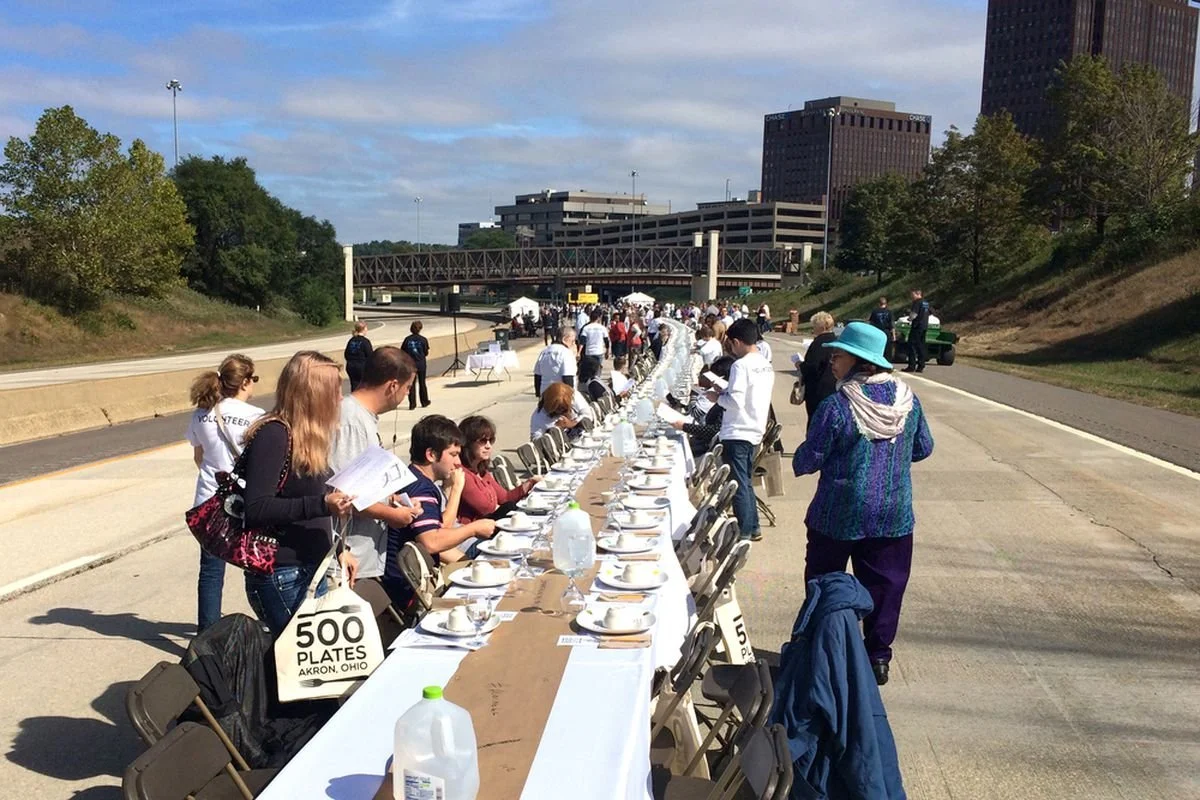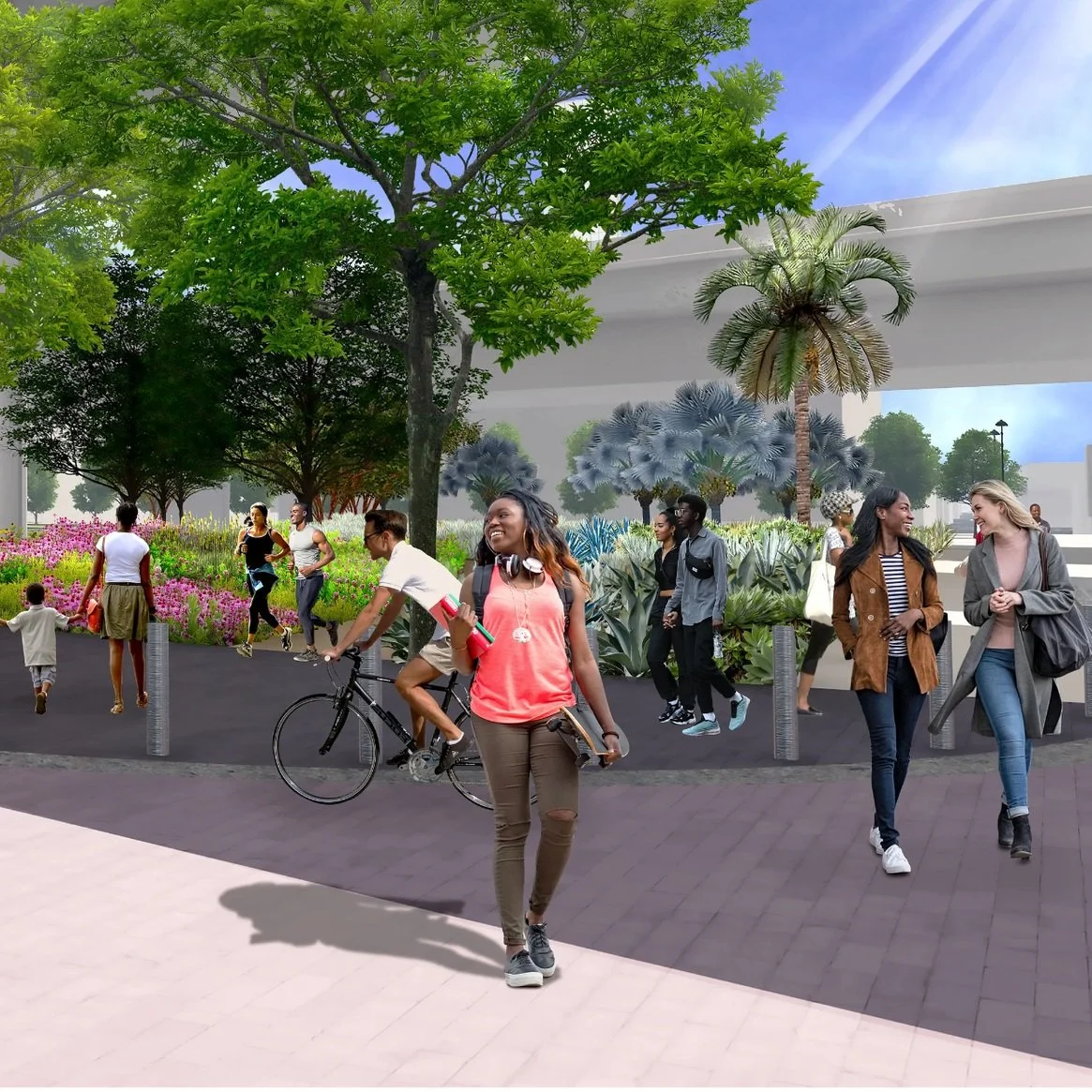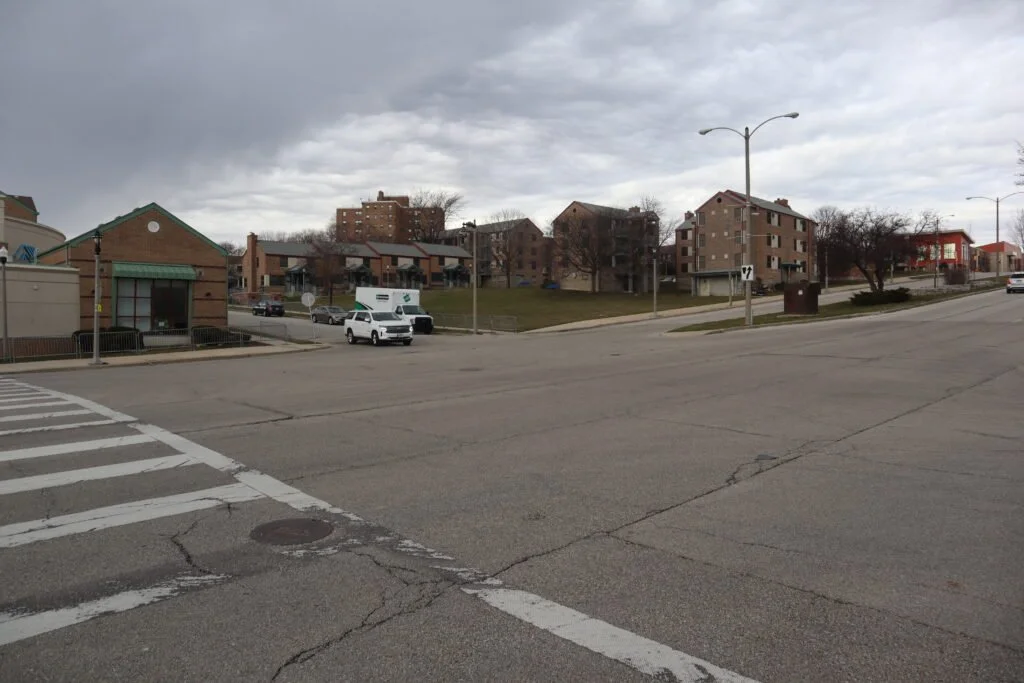Repairing Harm Through Infrastructure
Albemarle, NC
Infrastructure across North Carolina is being improved, invested in, built and addressed as IIJA funds have been put to work across the state and across the country. What does this mean in terms of opportunity for communities previously destroyed by freeway construction?
The Infrastructure Investment and Jobs Act
The historic passage of the Infrastructure Investment and Jobs Act (IIJA) aka the Bipartisan Infrastructure Law in November 2021 marked an important moment for American infrastructure. Beyond repairing roads and bridges, the bill allocates funding toward repairing harm and building more equitable cities.
This includes addressing the legacy of urban planning decisions that disproportionately destroyed Black and brown communities to build freeways, highways, and other infrastructure.
For decades, urban renewal projects and highway construction, often under the guise of revitalization and modern progress, devastated historically Black and brown neighborhoods. Give an example High-speed roads sliced through neighborhoods, displacing residents and severing social connections.
After decades of redlining, discriminatory lending practices, and divestment, areas of concentrated poverty and limited opportunities in these segregated areas.
The IIJA acknowledges this history and offers a chance for healing. The bill allocates $1 billion to the Reconnecting Communities Pilot Program, a significant step towards reuniting neighborhoods divided by highways.
How Federal Funding Can Be Used to Address Historic Harm
In an article titled How 3 Cities Are Using Federal Funding to Reknit Communities Divided by Urban Renewal and Freeways, Reimagining the Civic Commons writers indicate that this program makes it possible to use federal funding to address the harms perpetrated against Black and brown communities by urban renewal and freeway construction.
Specifically, the article highlights how cities are using the Reconnecting Communities grant program to reconnect people and public spaces historically harmed by highway construction.
They focus on how cities like Milwaukee, WI are using the program to reconnect the historically Black Bronzeville neighborhood, once separated by Interstate 43. The project plans include creating a vibrant public space underneath the freeway, aimed at fostering community connection and opportunities for economic activity.
Another example comes from Akron Ohio. The city's once-controversial Innerbelt Freeway, a project that displaced residents in the 1970s, is being dismantled (beginning in 2017) through the Oak Park Renewal Project. This initiative, championed by Akron residents committed to a sustainable future, aims to reconnect the historic Oak Park neighborhood with downtown (Congress for New Urbanism). As reported by Noor Hindi, Senior Writer for The Devil Strip, the Innerbelt's construction caused significant damage. The current project, focused on green space and reconnection, represents a step towards repair for the community.
Of course, these are just a few examples of Federal funding being used to address historic harms. It should be acknowledged that there remains a need for continued investment in Black communities as a whole and that reparations have never been explicitly adopted by the federal government, despite the outstanding and ongoing debt owed to African Americans.
It will take much more than the IIJA to create equitable and sustainable public spaces in cities across the US. Still, the spirit of the Reconnecting Communities program remains a powerful step in the direction of repair.
How To Get Involved
We believe one of the most powerful ways to get involved is to share knowledge!
Educate your community on the availability of the Reconnecting Communities programs, and advocate for, and insist on the robust and proper usage of available resources. Hold local leaders accountable. We all have the power to be change-makers. We know you can make a difference in your community.
We also know that organizing and advocating for change can sometimes feel overwhelming. We hope to see communities of color maximize the potential impact of this program and others like it.
At Civility Localized, we've witnessed firsthand the challenges communities face when accessing resources, and the triumphs that come when local government prioritizes equitable community engagement. We are passionate about equipping communities, especially communities of color, with the skills and knowledge needed to leverage resources like the Reconnecting Communities program.
One of the ways we are equipping communities is through our new offering, the Civic Impact Academy. By bringing together community change-makers and government representatives in a 10-week hybrid learning environment, we hope to improve growth outcomes in marginalized communities, one city at a time.
If you are a Charlotte, North Carolina area resident interested in increasing civic impact in your community, and if you desire to develop skills to navigate government engagement, check out CivicImpactAcademy.com and sign up to receive email updates. The inaugural cohort launches Fall 2024 with applications opening in July.









